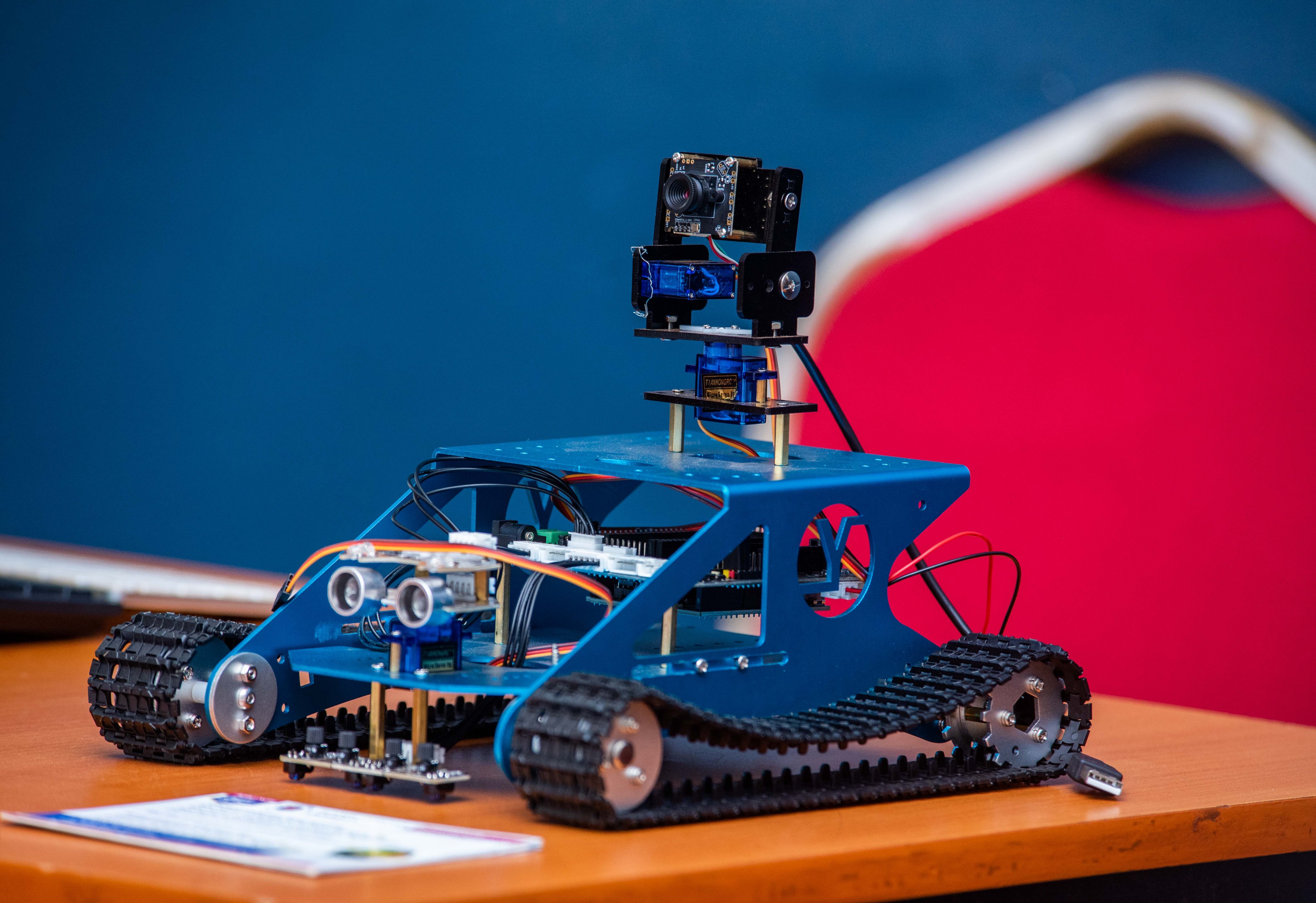UCU to host AUUS Games 16th Dec 2023
Uganda Christian University (UCU) has expressed readiness to host Inter-University games that will
By Jimmy Siyasa
Uganda Christian University (UCU) has always been at the forefront of technology and innovation. The latest development from the Department of Computing and Technology has students and faculty excited about the potential impact it will have on the environment and agriculture industry. A team of students from the department has developed a robot prototype that tests soil temperature and soil samples’ humidity with accuracy.
This innovation is a result of a long-term project that aimed to create a device that would address the increasingly urgent issue of climate change. The device is equipped with sensors that detect the amount of water in the soil and send the data to a central database, which can then be accessed by farmers in the region. This data can be used to determine the appropriate amount of water that crops need, thereby reducing the amount of water that is wasted in irrigation.

The lead developer of the robot, Felix Kennedy Akorimo, who is now a Teaching Assistant, explains how the device works in a video posted on the UCU YouTube channel. The robot moves on wheels, with a metal arm that extends into the ground to take measurements of the soil humidity. The device is powered by a rechargeable battery, making it easy to use in remote locations.
One of the most significant benefits of the soil humidity robot is its potential impact on the agricultural industry in Uganda. Farmers in the region struggle with water scarcity, and the high cost of irrigation systems often make it difficult for them to keep their crops hydrated. With the robot, farmers can make more informed decisions about the amount of water their crops require, reducing water wastage and maximizing their yields.
In conclusion, the soil humidity robot developed by UCU students is a significant breakthrough in technology that has the potential to address the challenges that farmers face in Uganda. As the device is continually improved for efficiency, it is anticipated that it will become an essential tool in the fight against climate change and in promoting sustainable agriculture. UCU remains committed to driving innovation in technology and nurturing the next generation of leaders in the field.
Uganda Christian University (UCU) has expressed readiness to host Inter-University games that will
Renowned for its research excellence, the Uganda Christian University (UCU) Faculty of Agricultural
Home Students Research Academics About Us Contact Us X UCU student narrates journey
UCU engaged in phase 2 of Uganda’s yellow fever vaccination campaign By Irene

256 312 350 800
info@ucu.ac.ug